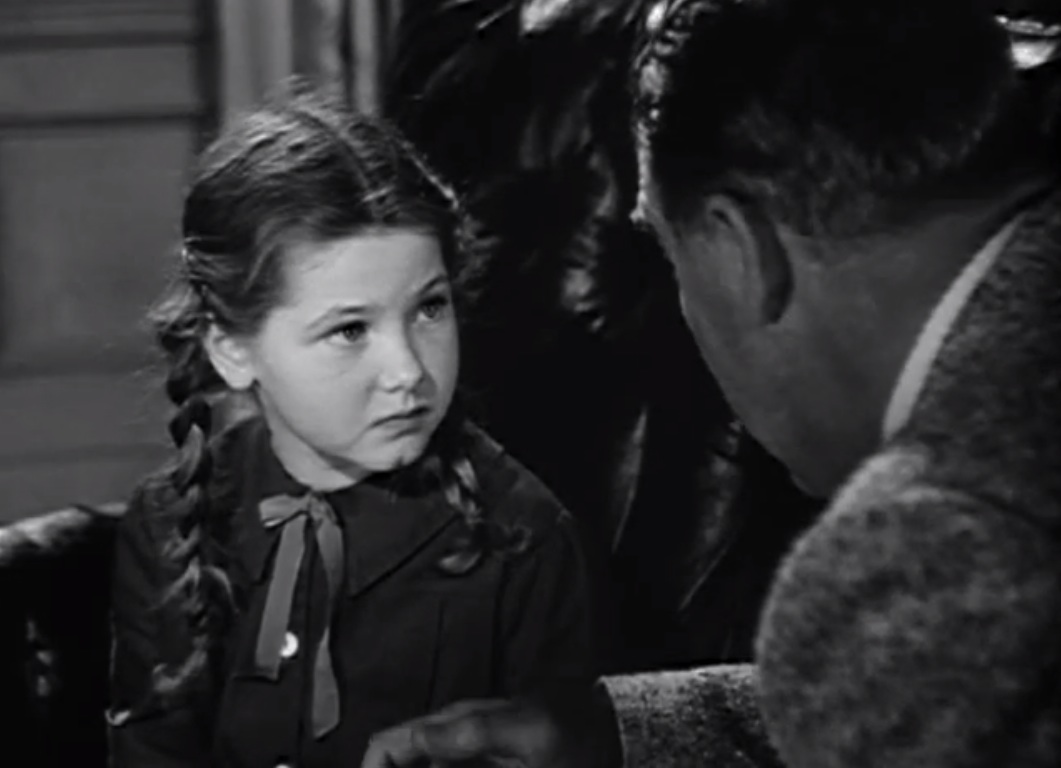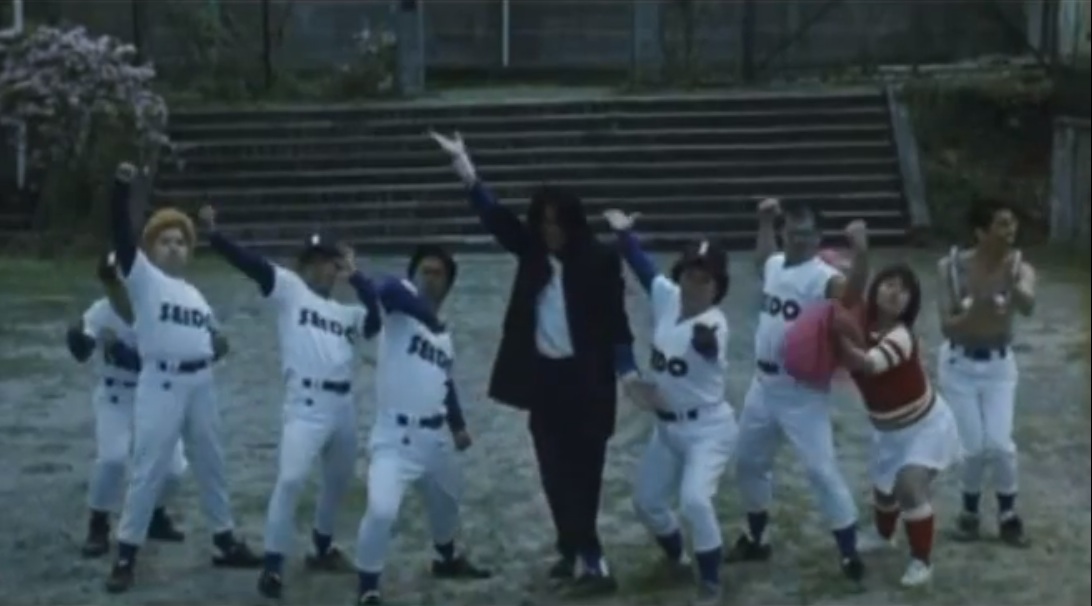Summer has ended. Fall is here, and that means the World Series, the Fall Classic, is coming. And with it comes the inevitable listicle of baseball movies you should be watching when you’re not puzzling out Major League Baseball’s increasingly arcane cycle of wildcard games and divisional series. While baseball isn’t quite the national pastime it once was, it has given us around a century of celluloid oddities and forgotten films to make things interesting.
So forget about a mullet-headed Kevin Costner musing about the cosmic significance of “the game,” or Tom Hanks blurting, “There’s no crying in baseball!” You won’t find them on this list. Instead, I bring you movies where Babe Ruth frees feral dogs, a golf-ball stealing tomcat inherits a Brooklyn ball club, and a Japanese high school team takes the field against baseball-playing zombies! I’m not going to tell you that all of these late-season call-ups are major league material, but more than a few of them are definitely diamonds in the rough.
10) “Headin’ Home” (1920)

Babe Ruth plays himself in this mound of apocryphal b.s. where he chops down trees, whittles them into baseball bats and frees stray dogs from the pound. The title cards (credited to Arthur “Bugs” Baer) are littered with lots of oddly-placed apostrophes in an attempt to give this narrative of this silent film a kind of homey Mark Twain feel. There are also racist scenes belittling a garlic-chomping Italian barber for no reason that I can figure. Most of the baseball scenes come via handheld footage of Yankee Stadium when Ruth is daydreaming about his destiny. Ruth played himself in several more films, including the Harold Lloyd romp “Speedy” (1928) and “The Pride of the Yankees” (1942) with Gary Cooper.
9) “Rawhide” (1938)

Yankee slugger Lou Gehrig (also playing himself) has had it with the crowds and salary negotiations, so he trades in his cleats for a pair of cowboy boots and buys a ranch in this zero-budget Western from 20th Century Fox. “The Iron Horse” quickly discovers that the country is just as corrupt as the big city when he gets shaken down by the crooked Rancher’s Protective Association. During the prerequisite barroom brawl, Gehrig beans the bad guys with pool balls in the one of the film’s “Gymkata” moments. “Rawhide” was released one year before amyotrophic lateral sclerosis (ALS) ended Gehrig’s baseball career. In an examination of the film published in the journal “Neurology” in 2006, researchers determined that Gehrig did not suffer from what is now known as Lou Gehrig’s Disease at the time of filming.
8) Kill the Umpire (1950)

William Bendix, in full-on loveable mug mode, lives for baseball, hates umpires and loses his job with the phone company when he accidentally drunk dials half of Palm Beach. Just when Bendix’s wife is about to leave him, his father-in-law (Ray Collins) pulls some strings to get him into an umpire school run by William Frawley (Fred Mertz from “I Love Lucy”), who is in nearly a third of the films on this list. Bendix ends up umpiring in Texas where he has to set fire to a hotel to escape rioting fans calling for his head. This movie begins with “Three Blind Mice” played over the Columbia logo, probably tricking kids into thinking it was a Three Stooges short. Fortunately, writer Frank Tashlin, who was on his way from directing Porky Pig cartoons to Jerry Lewis movies, delivers plenty of Stooge-like slapstick.
7) “Angels in the Outfield” (1951)

Pittsburgh Pirates manager Guffy McGovern (Paul Douglas) can’t stop cussing and brawling until an angel voiced by James Whitmore promises him a pennant if he mends his ways. Guffy learns to turn the other cheek and not only gets a winning team, but also the heart of a 24-year old Janet Leigh even though he looks old enough to be her grandpa. Well, the Lord works in mysterious ways, I guess. “Bells of St. Mary’s” star Bing Crosby owned the Pittsburgh Pirates at the time this film was made, which explains why MGM went for this catechism via the national pastime. “We do not depict any real characters or actual events,” a disclaimer at the beginning of the movie informs us. “This could be any baseball team in any league.” Judging by the amount of today’s sluggers who point to the heavens after hitting home runs, some all-stars do believe this could be happening to them.
6) “Battlefield Baseball” (2003)

When I started researching this list, I decided to scour the interwebs for Japanese baseball movies hoping to discover a somber biopic on Japanese homerun king Sadaharu Oh directed by Hiroshi Inagaki or something. Instead, I found link-after-link on the Tom Selleck flick “Mr. Baseball,” and this piece of total Asian cinema brain-rogering that I somehow missed when it came out ten years ago. You’ve got zombie baseball teams, infields strewn with butchered corpses and outfielders exploding for no reason. Characters also burst into song here and there making this whole thing not just a Japanese baseball zombie movie, but a Japanese baseball musical. Wrap what’s left of your mind around that one. However, even with all the decapitations, “Battlefield Baseball” gets just as sentimental as any American baseball movie. “The love of baseball goes beyond good and evil,” we are told near the film’s end. I doubt Kevin Costner would have said it any differently.
5) “Fear Strikes Out” (1957)

You get a sense that this isn’t your standard baseball movie long before Anthony Perkins climbs the netting behind home plate screaming “I showed ’em!” “Fear Strikes Out” is the story of Jimmy Piersall (Perkins), the Boston Red Sox outfielder who had to be institutionalized after suffering a mental breakdown in 1952. Perkins’ awkwardness on the field adds tension to his performance even if it does undermine his credibility as a major leaguer, but this film mostly belongs to Karl Malden as Piersall’s father, who pushes his son to glory and then to madness. Although we understand more about the bipolar disorder that the real Jimmy Piersall suffered from, and Piersall himself distanced himself from the movie, “Fear Strikes Out” still has much to tell us in this age where boys as young as 12 need Tommy John surgery because their parents pushed them too hard in little league.
4) “The Jackie Robinson Story” (1950)

One can only wonder what a gut-wrenching experience it was for Jackie Robinson to reenact sanitized versions of the most painful moments of his life for this biopic released only three years after he broke baseball’s color barrier. Where Alan Tudyk could just yell the n-word repeatedly while playing bigoted Phillies manager Ben Chapman in “42,” this year’s lavish Robinson biopic, the makers of “The Jackie Robinson Story” had to get creative with their depictions of racism. In one scene, Robinson rescues a black cat from being lynched by “fans” in the stands. The shot of Robinson in the dugout petting that cat, the white noose still dangling from its neck, may be one of the most chilling and saddening moments single moments ever staged on film. A young Ruby Dee plays Robinson’s supportive-but-suffering wife in one of her earliest roles.
3) “The Natural” (1984)

I know this movie is near the top of just about every other baseball movie list out there, but I ask you to watch it with the following questions in mind. First, is Robert Redford’s Roy Hobbs a ghost returning to claim vengeance on those who cut short his shot at greatness? I watched it twice in a row, but still couldn’t decide. Also, did the Arnold Rothstein-type gambler played by an uncredited Darren McGavin (!) set Hobbs up to get shot by the mysterious woman in black (Barbara Hershey) early in the film? Indicators point to yes, but the film’s poetic-yet-cryptic dialog leave the answers on some other ethereal plane. And speaking of the otherworldly, are those amber waves of grain in the film’s final shot located in Elysium, or did Hobbs survive bullet wounds both old and new (if he was even alive to begin with) as he rounded the base paths in the ninth inning of the deciding game? Similarities to Clint Eastwood’s “High Plains Drifter” cannot be ignored.
2) “Rhubarb” (1951)

In a mostly forgotten piece of baseball jargon, a rhubarb is a benches-clearing brawl, but in this farce, it’s an ill-tempered tomcat who inherits a last place Brooklyn ball club. At first, ballplayers played by Strother Martin and Leonard Nimoy balk at playing for a feisty feline, but it isn’t long after Rhubarb takes his place in the owner’s box before the team goes on an improbable win streak. After that, the “failure to communicate” guy from “Cool Hand Luke” and Mr. Spock can’t wait to pet Rhubarb before stepping into the batter’s box. Ray Milland and William Frawley help make “Rhubarb” one of the funniest baseball comedies ever, which is no small feat when you consider the family friendly dreck that usually results from the pairing of animals and sports (think “Gus,” Disney’s field goal kicking mule epic for 1976). Orangey, AKA Rhubarb, had a surprisingly long acting career of being poked by off-camera sticks, and is probably best remembered for trying to eat Grant Morrison in “The Incredible Shrinking Man” (1957).
1) “The Bingo Long Traveling All-Stars & Motor Kings” (1976)

The last film sported Mr. Spock and this one begins with Lando Calrissian talking trash to Darth Vader. Billy Dee Williams and James Earl Jones join Richard Pryor in maybe the only film to explore the Negro Leagues without really being about white people overcoming their racism. Tired of being mistreated and underpaid by team owners, Bingo Long (Williams) forms an all-star team of his own and barnstorms the Midwest in a fleet of jalopies. While playing white teams in hostile towns, the Traveling All-Stars perform demeaning comedy routines just to keep from getting killed. But when the Jackie Robinson moment comes near the film’s end, it’s still a bittersweet one because it spells the end of black-owned teams. Directed by John Badham only a year before he propelled a white polyester-clad John Travolta to mega-stardom in “Saturday Night Fever,” a film that explores race and class in its own particular way. With great dialog and performances to match, “The Bingo Long Traveling All-Stars & Motor Kings” should be near the top of any best baseball movie list.
Bob Calhoun used to wrestle guys in sasquatch suits while drunks threw food at him. His latest pop culture memoir, “Shattering Conventions: Commerce, Cosplay and Conflict on the Expo Floor” (Obscuria Press, 2013), has a chapter on WrestleMania in it, along with passages on Comic-Con, a Portland “Twilight” con, gun shows











